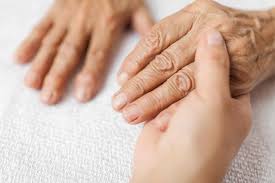Nuance Audio is a new option for people who resist traditional aids, from the company that makes Ray-Bans and operates LensCrafters.
Seekers of Meaning Podcast Posted Online March 7, 2025
What's Next Longevity Deal Talk Episode 32, January, 2025
Presentation: What's Next Longevity Venture Summit, June, 2025

 The Early Stage Of Dementia. In the early stages, families will worry. A family member may say or forget things that make them wonder if it’s dementia or just a normal part of aging. They should consider persuading their loved one to get an evaluation from a professional. If their loved one is hesitant, a
The Early Stage Of Dementia. In the early stages, families will worry. A family member may say or forget things that make them wonder if it’s dementia or just a normal part of aging. They should consider persuading their loved one to get an evaluation from a professional. If their loved one is hesitant, a